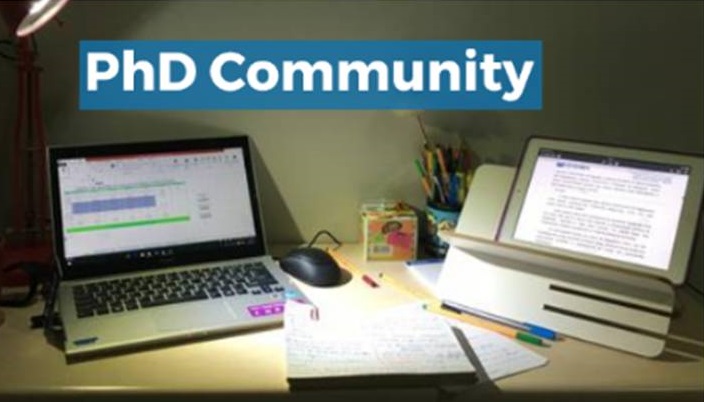
If you are a PhD student in your final year, you probably devote a lot of time and energy to submitting your study and seeking advice from other students, professors, administrators, parents, and the Internet. Stop struggling and start savoring the last few months of your PhD life if needed by
joining a PhD community at your institution or otherwise that will help you connect with peer students, learn and get help from brilliant researchers, share your skills and ideas, get constructive feedback, make new friends, as well as grow your professional network.
Agreed that sometimes it's hard to know which advice to focus on and what will make the biggest difference in the long run. So before you start stressing about the same, here are six pieces of advice listed below you should seriously consider. They can be read in any order you like, and you can always go back to them when you're feeling discouraged or need some motivation as you work through your final year.
Self-awareness is the key to success
We frequently give ourselves too little credit for all that we accomplish.
Remind yourself for a moment right now that the purpose of life is to notice what you are already a part of, not to show off your ingenuity or creativity. Consider your incredible journey and all of your positive qualities.
A PhD is a cruel and unforgiving test. Do not let it distort your perspective to the point where you fail to recognize your extraordinary abilities and the extraordinary course you are on.
Keep steady on your path
You may have days where nothing might make sense during your final year of PhD.
You might wonder why you're even doing your PhD, or you might look ahead with fear and trepidation, wondering if you'll ever be "good enough" or if you'll ever "make it."
On these days, embrace your discomfort and trust that you are doing and being exactly what you should be doing. Despite your anxious mind's fear of the future, keep in mind that you're headed in the right direction. Having that confidence in your direction can help you continue moving forward despite the doubt and anxiety.
There are some causes worth pursuing
There is a personal struggle that underpins every PhD. It is useful to remind yourself what this fight is, why you're here, and of why you initially decided to start your PhD.
You see, even though you may not want to admit it, every PhD student is fighting for something, whether it be to prove something to yourself, to appease the perfectionist in you, to make your parents proud, or to disprove everyone who has ever told you that you can't.
Whatever it is, thinking back on this greater cause can give you the extra push you need before giving up.
You may not be able to keep up with everyone else.
We all have a tendency, PhD students or not, to compare ourselves to those around us. This is especially true as we work on our theses. We can look around and feel either alarmingly behind or alarmingly ahead of where everyone else is. Everyone works at a different pace, either due to their individual preferences and skills or because of the project or methodology they are working on.
In light of this, it is advisable to concentrate on your thesis and refrain from gauging your progress in relation to others. You could reflect on whether you’re working slowly or quickly in terms of your own skills or aptitudes and not in terms of other people.
Join a community
As you move from one week to the next, you may find yourself lacking motivation or wondering where the time goes. Setting your intentions at the beginning of each week, and even at the beginning of each day, can make a huge difference. It only takes five minutes; you can choose to set a few goals (such as writing section 1, reading that article, and so on), or focus more on your feelings.
Keep in mind that if getting a PhD was simple, everyone would do it.
If getting a PhD was simple, more people would do it. They are, in fact, difficult and have always been and will always be. You must first acknowledge that the only way to write a successful thesis is to put in the necessary time, focus, and effort. Two, you must accept that, while things do not get easier, you do better at dealing with the difficulty. You develop new skill sets and intellectual and emotional resilience, which means the days get easier, even if the workload does not.